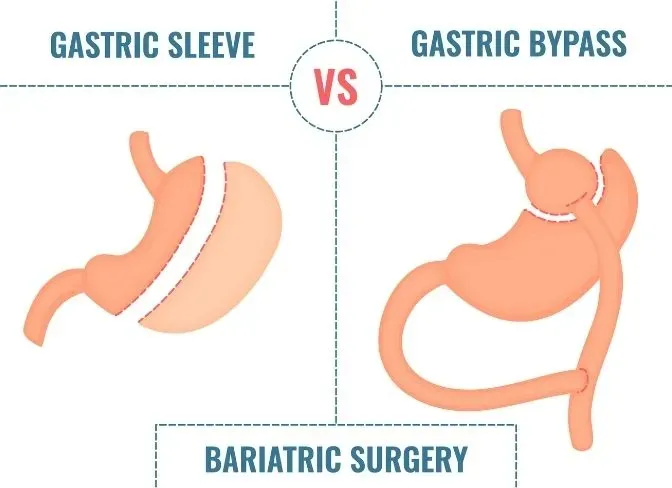Embarking on the journey of weight loss surgery entails anticipation of transformative results. As you prepare for this significant step, considerations for the outcomes, recovery process, potential side effects, health benefits, and necessary lifestyle adjustments are crucial.
Anticipated Weight Loss: Consulting your doctor will provide insights into the expected weight loss, dependent on your current weight and the chosen surgical procedure. Sleeve gastrectomy, gaining popularity, yields approximately 40% weight loss, while gastric bypass surgery averages around 60%. Weight loss may continue for up to 2-3 years post-surgery.
Recovery Process: Most weight loss surgeries are laparoscopic, ensuring a swifter recovery with shorter hospital stays (2-3 days). The type of surgery and any potential complications may influence recovery duration. Open surgeries, requiring larger incisions, generally extend healing times.
Possible Side Effects: Weight loss surgery, while transformative, carries potential short-term and long-term complications. Common side effects include constipation, dumping syndrome, gallstones, and wound infections. Serious complications, although rare, encompass bleeding in stool, blood clots, and leaks in new connections formed during surgery.
Health Benefits: Immediate health improvements often follow weight loss surgery. Conditions like type 2 diabetes, sleep apnea, high blood pressure, arthritis, and high cholesterol may significantly ameliorate. Regular monitoring and prompt communication with your doctor are essential for managing potential complications.
Nutrition After Surgery: Weight loss surgery alters nutrient absorption, necessitating attention to nutrient-rich foods. Iron, Vitamin B12, folate, calcium, and Vitamin D absorption may be affected. Collaborate with a dietitian to create a nutrition plan and inquire about the need for supplements.
Lifestyle Changes: Ensuring lasting results involves complementing surgery with lifestyle adjustments. Eating small, frequent meals, committing to good nutrition, and incorporating exercise are pivotal. Avoiding large meals and adapting to a nutrient-rich diet are essential components of post-surgery life.
Changes in Self-Image and Relationships: Adjusting to the post-surgery self-image and lifestyle changes is a gradual process. Seeking support from a therapist or joining support groups can aid in navigating these adjustments. Recognizing changes in relationships, especially those centered around food-related activities, and finding alternative ways to socialize are key considerations.
Embarking on the post-weight loss surgery journey requires dedication to recovery, adherence to lifestyle changes, and a proactive approach to managing potential side effects. Regular follow-ups with healthcare professionals and seeking emotional support contribute to a successful and fulfilling post-surgery experience.





Get Free Quote